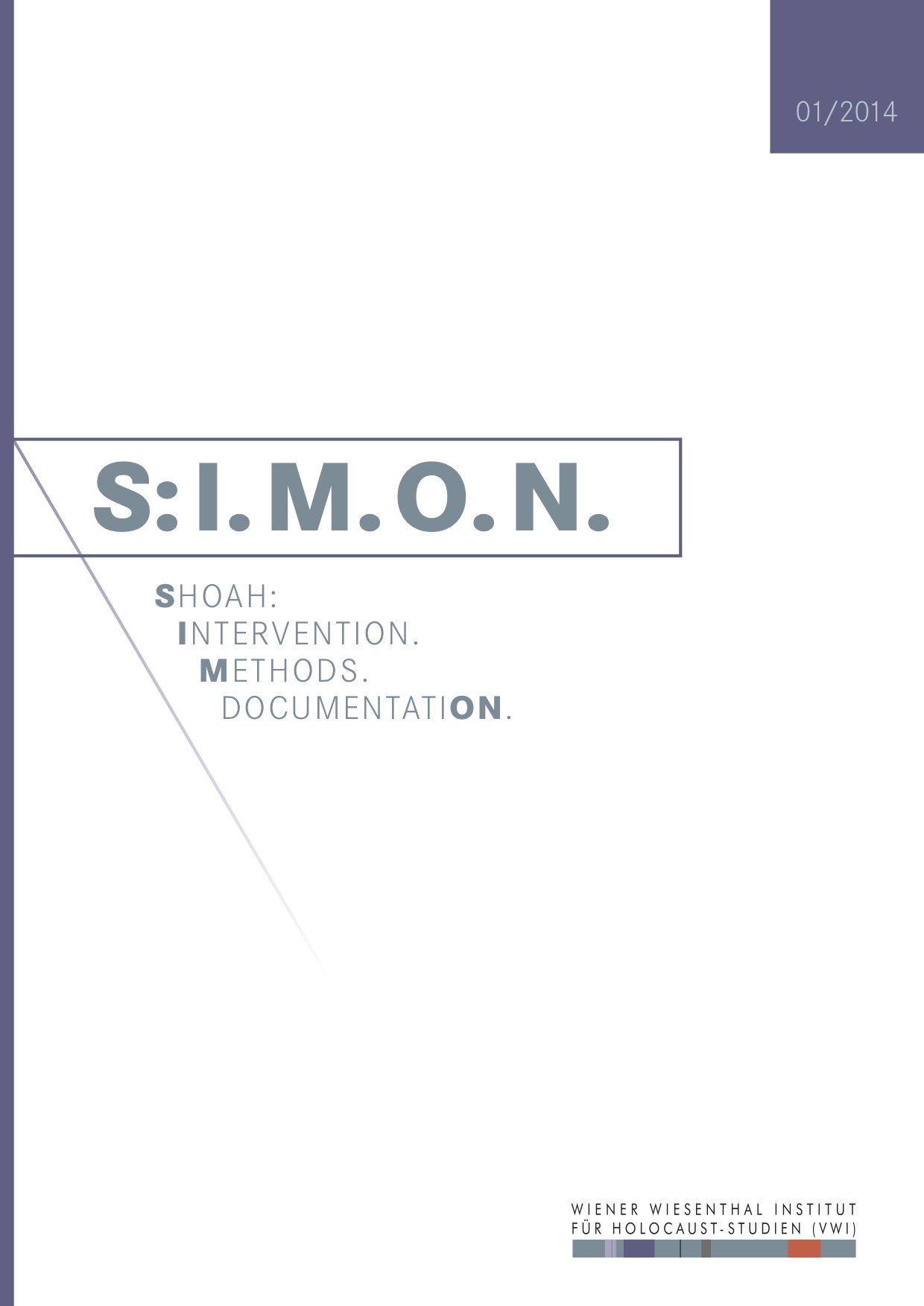The Path to the Holocaust - Fascism and Antisemitism in Interwar Romania
The Path to the Holocaust - Fascism and Antisemitism in Interwar Romania
Author(s): Raul CârstoceaContributor(s): Nadezda Kinsky-Müngersdorff (Editor)
Subject(s): Jewish studies, Recent History (1900 till today), Interwar Period (1920 - 1939), Fascism, Nazism and WW II, History of the Holocaust, History of Antisemitism
Published by: Wiener Wiesenthal Institut für Holocaust-Studien
Keywords: legionary movement in interwar Romania; virtual consensus on antisemitism; ‘new generation’ of Romanian intellectuals; Antonescu regime; religion; exclusion; violence; race;
Summary/Abstract: This article outlines the principal directions of my research: It focuses on the interplay of antisemitism and fascism in the ideology of the legionary movement in interwar Romania as well as on the virtual consensus on antisemitism that was established in the 1930s as a result of the support for the movement received from most of the representatives of the ‘new generation’ of Romanian intellectuals. This consensus was pivotal in desensitising the general population towards the plight of Romanian Jews and making it possible for the discriminatory measures to gradually escalate into outright policies of extermination. Thus my research demonstrates the responsibility held by the legionary movement even though they were not directly involved in the Romanian wartime Holocaust perpetrated by the Antonescu regime: The legionary movement nevertheless promoted an antisemitic discourse that was much more extreme than that of all its predecessors and contemporaries, advocating a radical exclusion with genocidal overtones. Moreover, while being as ideological and abstract as its Nazi counterpart, legionary antisemitism posited religion rather than race as the basis for the exclusion of the Jews in line with the ideology of a movement that presented itself as ‘spiritual’ and ‘Christian’. The legionary exclusion based on religion proved as violent and murderous as the one based on race, both before and during the movement‘s time in power. As such, the evidence from the Romanian case study can serve to nuance and even challenge existing interpretations that identify only racist antisemitism as genocidal.
Journal: S:I.M.O.N. Shoah: Intervention. Methods. Documentation.
- Issue Year: 1/2014
- Issue No: 1
- Page Range: 43-53
- Page Count: 11
- Language: English

